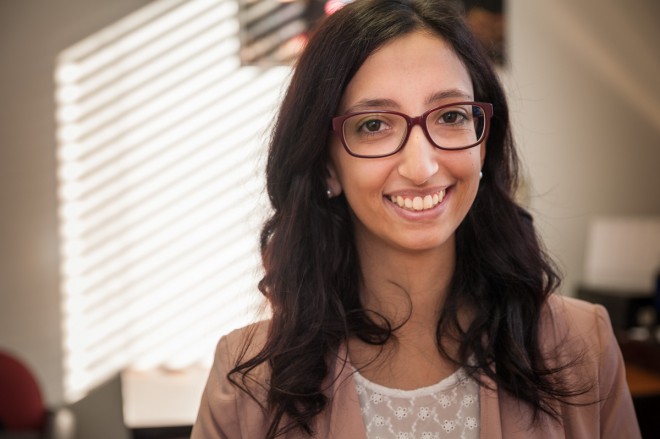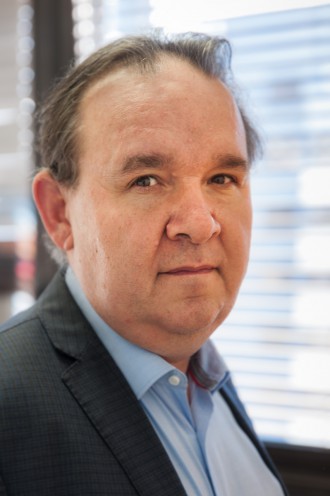 Marisa A. Nunes, a sixth-year student of General Medicine, won the first prize of the Endocrinology & Diabetes Session in one of the important international medical student congresses WIMC 2019 in Warsaw (9 till 12 May 2019). Results of her study Quantitative characteristics of glycemic excursions during defined level of physical activity leading to hypoglycemia and after its treatment with 20g of ingested glucose may help patients treated with insulin keep better control over glycemic excursions during physical activity and allow them to treat hypoglycemia effectively when it happens. This work is a continuation of the project awarded as the Endocrinology Session winner in one of the world's leading student congresses in (bio)medical sciences ISCOMS 2018 in Groningen, Holland. The study was conducted under the supervision of Dr. Jan Brož from the Department of Internal Medicine.
Marisa A. Nunes, a sixth-year student of General Medicine, won the first prize of the Endocrinology & Diabetes Session in one of the important international medical student congresses WIMC 2019 in Warsaw (9 till 12 May 2019). Results of her study Quantitative characteristics of glycemic excursions during defined level of physical activity leading to hypoglycemia and after its treatment with 20g of ingested glucose may help patients treated with insulin keep better control over glycemic excursions during physical activity and allow them to treat hypoglycemia effectively when it happens. This work is a continuation of the project awarded as the Endocrinology Session winner in one of the world's leading student congresses in (bio)medical sciences ISCOMS 2018 in Groningen, Holland. The study was conducted under the supervision of Dr. Jan Brož from the Department of Internal Medicine.
A conversation with the winner and the supervisor of her work.
There Is Still Much More to Be Learnt
How long have you been dealing with the topic of diabetes and hypoglycaemia and what was your motivation to start with it?
The presentation at this conference is in fact the continuation of our previous work on hypoglycaemic changes during physical exercise in patients with Type 1 Diabetes Mellitus presented last year at ISCOMS 2018. Under the supervision of Dr Jan Brož, I have been involved in research related to DM and hypoglycaemia for the last years and it is a topic that greatly interests me. Personally, I would say there are so many relevant discoveries to date and yet still much more to be learnt.
How did you prepare for the congress?
During the months leading up to the congress, I familiarised myself with all the important research already available on the topic of hypoglycaemia and physical exercise in Diabetes Mellitus. We also used the time to review all our latest findings, which included analysing new data and interpreting the results, as well as practicing my presentation for the congress.
How did you enjoy the rest of your stay in Warsaw, the city, networking, people etc.?
I had a lovely time while in Warsaw. It was my first time visiting the city therefore, outside of attending the great scientific program the Congress provided, I made sure to explore the city as much as possible during my short stay as well as getting to know my fellow delegates in both an academic and social setting (for example during the Gala Dinner).
How do you divide your time between academic responsibilities and research?
I do my best to combine both my academic duties and responsibilities with my activities in the research projects. Fortunately, I’m given plenty of time to organise my schedule and set my own deadlines for the research tasks being conducted, which allows me to not only focus on my studies but also be fully dedicated to the work we’re conducting in Diabetes research. And I still have plenty of time to rest and for my leisure activities.
How to Avoid Hypoglycaemia More Easily

Michal Hladík (2. LF)
Marisa Nunes’ supervisor is Dr Jan Brož from the Internal Clinic. We present his work in a short interview; the doctor invites undergraduates and PhD students to cooperate on the projects of the clinic.
How does Marisa Nunes’ work fit into your personal focus and, in a broader context, into the focus of your Internal Department?
I am an internist and diabetologist and Diabetology is one of the key subjects at our Department of Internal Medicine. The study Marisa collaborated on belongs to a specific area of basic research of physical activity. Minimal self-production of insulin in patients with type 1 diabetes disrupts the complex hormonal regulatory system of the body preventing hypoglycaemia in a healthy person, which is a great danger to these patients during physical activity. Our study showed how fast can blood glucose decrease during a defined level of physical activity and gives our patients an idea of when a hypoglycaemic event may be expected. This makes it easier to prevent it.
What types of projects do you run?
There are many in the diabetes field. Some relate to hypoglycaemia investigation, some focus on diabetes epidemiology. We also have several clinical projects focused on diabetes education. One of the most interesting deals with type 1 diabetes patients during car driving as hypoglycaemia is a risk factor of car accidents due to cognitive function impairment. We also co-operate internationally. Several telemedicine studies are conducted together with the Norwegian state centre for telemedicine. By the way, Norway is due to its large areas with low inhabitant density, where usual type of medical care is ineffective, on the top in the field of telemedicine. The articles with the results of several of our projects may be seen on the PubMed website.
May also students join your projects?
Yes, we involve both undergraduates and PhD students. We try to tailor work for undergraduates according to their timetable. Most of them then present part of the studies at our faculty conference but also internationally, as Marisa does. Finally, they usually become co-authors of our articles. Those interested may contact me via my faculty email.
